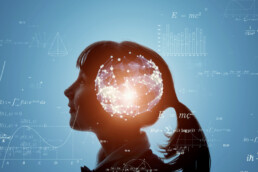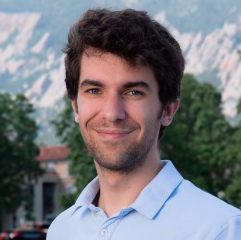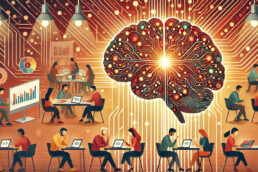Artificial Intelligence and Physics Education – ongoing projects at Imperial College London
Artificial Intelligence and Physics Education – ongoing projects at Imperial College London
Date: April 14 2025 - at 11.15 AM (Italian time)Where: Aula P1A, Complesso Paolotti
Imperial College London has invested in a variety of projects to explore the use of generative artificial intelligence (GAI) and machine learning (ML) in higher education The main project which I will discuss aims to test the effectiveness of Large Language Models (LLMs) in assisting large-scale qualitative research and consequently whether workflows incorporating LLMs can provide useful and timely feedback to instructors on the impact of their teaching. The focus of the work is on student use of scientific argumentation in lab reports. We have constructed a codebook for scientific argumentation to identify elements of argumentation, the relationships between those elements, and their veracity. Through building a training dataset of over 250 lab reports from students in their first- and second-year lab courses, we aim to analyse the whole set of 1899 lab reports from two cohorts of students by utilizing fine-tuning of open-source LLMs to automate the coding process (Fussell et al., 2025). The specific purpose here is to test how changes to teaching between the two cohorts affected students’ scientific argumentation skills, and, therefore, help us to evaluate the impact of the changes.
In addition to this, I will provide an overview of the projects that are currently being undertaken across Imperial related to AI and education. These institutionally funded projects include: (1) the use of GAI in providing feedback to students through the in-house problem sheet web-interface Lambda Feedback; (2) the use of LLMs to analyse and provide in-the-moment feedback to students on the structural elements of their lab reports; (3) using ML to identify at-risk students through analysis of interaction data from Lambda feedback; and (4) collecting data on students’ views about how instructors use GAI in their teaching.

conference speakers

Michael Fox
Michael has worked on a wide range of projects in physics education research, from workforce development for the quantum industry through to analysis of the process of curriculum and culture change in a physics department. His core interest is in what and how students learn in physics teaching laboratories. This has been informed by his own experience as a student in undergraduate teaching labs through to his PhD research on analysing data on plasma turbulence in nuclear fusion reactors. How to teach experimental physics effectively came to the forefront when he was teaching high-school physics, leading to post-doctoral work on assessing student learning in teaching labs using the E-CLASS and MAPLE surveys during his time in the Lewandowski group in Boulder, Colorado. He has recently been appointed as the head of the teaching laboratories in the Department of Physics at Imperial College London, where he has started to implement evidence-based practices.
PER-Grounded di Faculty Learning Community
PER-Grounded di Faculty Learning Community
Date: December 16 2024 - from 4.30 PM to 5.30 PM (Italian time)Where: Aula P4C, Complesso Paolotti
The primary goal of physics teaching is to educate human beings to science and its nature. However, as technology continues to evolve, artificial intelligence (AI) is gaining prominence not only in technical and scientific domains but also in education. Recently, the rise of AI has sparked both concern and enthusiasm among educators, affording new opportunities and challenges for teaching and learning.
As we navigate this fast-evolving landscape, several questions arise: What competences, practices, and aspects of human development do we aim to foster, and how does the availability of AI-based systems impact their teaching and learning? How should we, as educators, frame AI-based systems and our – and our students’ – interactions with them? Is it even possible to “collaborate” with AI in meaningful ways? The panelists, all experts in physics education research, will bring a variety of expertise and perspectives, from technical considerations to ethical implications.

conference speakers
Magdalena Kersting
Department of Science Education, University of Copenhagen
Olivia Levrini
Dipartimento di Fisica e Astronomia “Augusto Righi”, University of Bologna
Giulia Polverini
Department of Physics and Astronomy, Uppsala University
Christopher Robin Samuelsson
Department of Physics and Astronomy, Uppsala University
